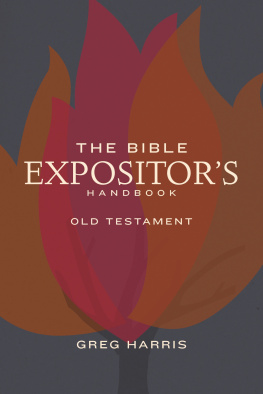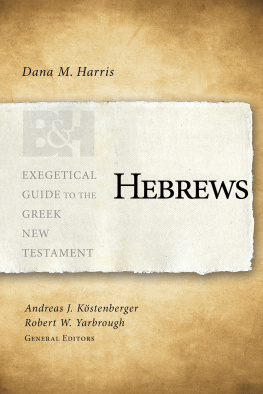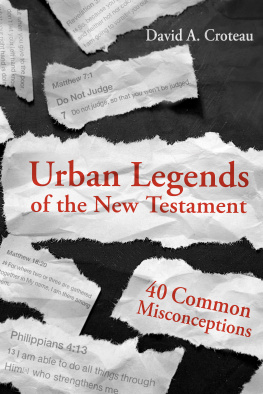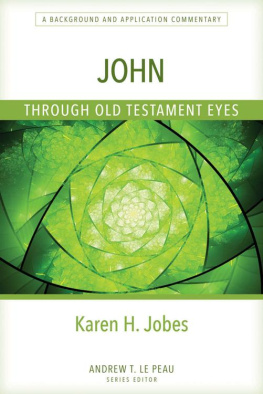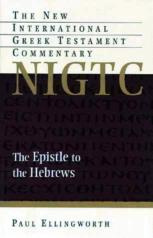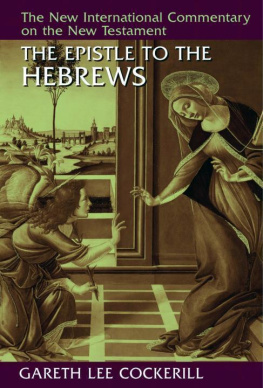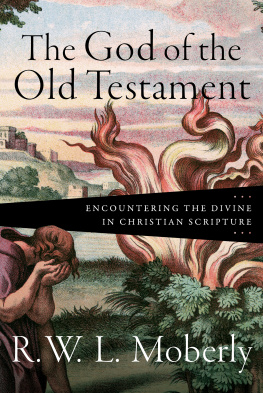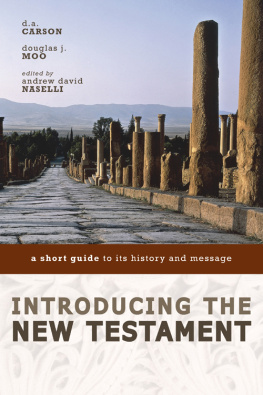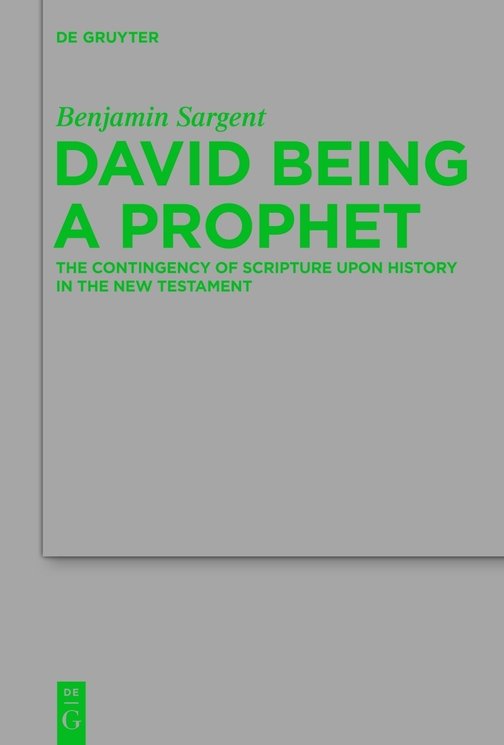Bibliography
Abegg, Martin G., The Messiah at Qumran: Are We Still Seeing Double? DSD 2:2 (1995), pp. 124144.
Adam, A. K. M., Docetism, Ksemann, and Christology: Why Historical Criticism Cant Protect Christological Orthodoxy, SJT 49:4 (1996), pp. 391410.
Adam, A. K. M., Faithful Interpretation: Reading the Bible in a Postmodern World (Minneapolis: Fortress, 2006).
Adam, A. K. M., Poaching on Zion: Biblical Theology as Signifying Practice, in Reading Scripture with the Church: Toward a Hermeneutic for Theological Interpretation (Grand Rapids: Baker, 2006), pp. 1734.
Aichele, George; Marshall, Peter and Walsh, Richard, An Elephant in the Room: Historical-Critical and Postmodern Interpretations of the Bible, JBL 128:2 (2009), pp. 383404.
Albl, M. C., And Scripture cannot be Broken: The Form and Function of Early Christian Testimonia Collections (NovTSup 96; Leiden: Brill, 1999).
Albright, W. F. and Mann, C. S., Matthew: A New Translation with Introduction and Commentary (ABC; New York: Doubleday, 1971).
Alexander, Loveday, The Preface to Lukes Gospel: Literary Convention and Social Context in Luke 1.14 and Acts 1.1 (SNTSMS 78; Cambridge: Cambridge University Press, 1993).
Alexander, Loveday, Acts in its Ancient Literary Context (London: T. & T. Clark, 2005).
Alexander, Philip S., The Rabbinic Hermeneutical Rules and the Problem of the Definition of Midrash, PIBA 8 (1984), 97115.
Alexander, Philip S., The King Messiah in Rabbinic Judaism, in King and Messiah in Israel and the Ancient Near East: Proceedings of the Oxford Old Testament Seminar (ed. John Day; JSOTSup 270; Sheffield: Sheffield Academic Press, 1998), pp. 456473.
Allen, Leslie C., Ezekiel 119 (WBC 28; Nashville: Thomas Nelson, 1994).
Alter, Robert, The Art of Biblical Narrative (London: George Allen & Unwin, 1981).
Aquinas, Thomas, Summa Theologi, Vol I: Latin text and English Translation, Introductions, Notes, Appendices and Glossaries (ed. Thomas Gilby et al.; London/New York: Eyre and Spottiswoode/ McGraw-Hill Book Company, 1963).
Arnold, B. T.. Lukes Characterising use of the Old Testament in the Book of Acts, in History, Literature and Society in the Book of Acts (ed. Ben Witherington; Cambridge: Cambridge University Press, 1996), pp. 300323.
Arterbury, Andrew E., Breaking the Betrothal Bonds: Hospitality in John 4, CBQ 72:1 (2010), pp. 6383.
Attridge, Harold W., Let us Strive to Enter that Rest: The Logic of Hebrews 4:111, HTR 73:2 (1980), pp. 279288.
Attridge, Harold W., The Epistle to the Hebrews: A Commentary on the Epistle to the Hebrews (Hermeneia; Philadelphia: Fortress, 1989).
Bandstra, A. J., Heilsgeschichte and Melchizedek in Hebrews, CTJ 3:1 (1969), pp. 3641.
Basser, H. W., Josephus as Exegete, JAOS 107:1 (1987), pp. 2130.
Bassler, Jouette M., A Man for All Seasons: David in Rabbinic and New Testament Literature, Int. 40:2 (1988), pp. 156169.
Barnett, Paul, Finding the Historical Christ (Michigan: Eerdmans, 2009).
Barrett, C. K., The Acts of the Apostles (ICC; London: T & T Clark, 1994), pp. 335336.
Barrett, C. K., Luke/Acts, in It is Written: Scripture Citing Scripture: Essays in Honor of Barnabas Lindars (ed. D. A. Carson and H. G. M. Williamson; Cambridge: Cambridge University Press, 1998), pp. 231244.
Barth, Markus, The Old Testament in Hebrews: An Essay in Biblical Hermeneutics, in Current Issues in New Testament Interpretation (London: SCM, 1962), pp. 6578.
Bartholomew, Craig G., Uncharted Waters: Philosophy, Theology and the Crisis in Biblical Interpretation, in Renewing Biblical Interpretation (ed. Craig G. Bartholomew, Colin Greene and Karl Mller; Grand Rapids/Carlisle: Zondervan/ Paternoster, 2000), pp. 134.
Barton, John, Reading the Old Testament: Method in Biblical Study (London: DLT, 1984).
Barton, John, Reading the Bible as Literature: Two Questions for Biblical Scholars, JLT 1:2 (1987), pp. 135153.
Barton, John, Historical Critical Approaches, in The Cambridge Companion to Biblical Interpretation (ed. John Barton; Cambridge: Cambridge University Press, 1998), pp. 920.
Barton, John, The Messiah in Old Testament Theology, in King and Messiah in Israel and the Ancient Near East: Proceedings of the Oxford Old Testament Seminar (ed. John Day; JSOTSup 270; Sheffield: Sheffield Academic Press, 1998), pp. 365379.
Barton, John, The Nature of Biblical Criticism (Louisville/London: WJK, 2008).
Barton, John, The Future of Old Testament Study: An Inaugural Lecture delivered before the University of Oxford on 12 November 1992 (Oxford: Clarendon Press, 1993).
Bateman, Herbert W., Psalm 110:1 and the New Testament, BSac 149 (1992), pp. 438453.
Bauckham, Richard, Reading Scripture as a Coherent Story, in The Art of Reading Scripture (ed. Ellen F. Davis and Richard B. Hays; Grand Rapids: Eerdmans, 2003), pp. 3845.
Bauckham, Richard, Jesus and the Eyewitnesses: The Gospels as Eyewitness Testimony (Grand Rapids: Eerdmans, 2006).
Begg, Christopher, Josephus Retelling of 1 Kings 1 for a Graeco-Roman Audience. TynB 57:1 (2006), pp. 85108.
Bietenhard, H., , NIDNTT 2 (1976), pp. 206208
Berrin, Shani, Qumran Pesharim in Biblical Interpretation at Qumran (ed. Matthias Henze; Grand Rapids: Eerdmans, 2005), pp. 110133.
Bird, Chad L., Typological Interpretation within the Old Testament: Melchizedek Typology, CJ 26:1 (2000), pp. 3652.
Black, C. Clifton, Trinity and Exegesis, ProEcc 19:2 (2010), pp. 151180.
Blomberg, Craig L., Matthew, in Commentary on the New Testament use of the Old Testament (ed. G. K. Beale and D. A. Carson; Grand Rapids/Nottingham: Baker/Apollos, 2007), pp. 1109.
Blosser, Don, The Sabbath Year Cycle in Josephus, HUCA 52 (1981), pp. 129139.
Bock, Darrell L., Proclamation From Prophecy and Pattern: Lukan Old Testament Christology (JSNTSup 12; Sheffield: JSOT Press, 1987).
Bockmuehl, Marcus, Reason, Wisdom and the Implied Disciple of Scripture, in Reading Texts, Seeking Wisdom (ed. David E. Ford and Graham Stanton; London: SCM, 2003), pp. 5367.
Booij, Th., Ps cx: Rule in the midst of your foes! VT 41:1 (1991), pp. 396407.
Bovon, Franois, Luke the Theologian: Fifty-five Years of Research (19502005) (Waco: Baylor University Press, 2005).
Bowald, Mark Alan, The Character of Theological Interpretation of Scripture, IJST 12:2 (2010), pp. 162183.
Bowker, J. W., Psalm CX, VT 17:1 (1967), pp. 3141.
Bowker, J. W., Speeches in Acts: A Study in Proem and Yelammedenu Form, NTS 14:1 (1967), pp. 96111.
Bowlin, John, Parts, Wholes and Opposites: John Milbank as Geisteshistoriker, JRE 32:2 (2004), pp. 257269.
Briggs, C. A., A Critical and Exegetical Commentary on the Book of Psalms (ICC; Edinburgh: T. & T. Clark, 1987).
Brooke, George J., Exegesis at Qumran: 4QFlorilegium in its Jewish Context (JSOTSup 29; Sheffield: JSOT Press, 1985).
Brooke, George J., Luke-Acts and the Qumran Scrolls: The Case of MMT, in Lukes Literary Achievement: Collected Essays (ed. Christopher Tuckett; JSNTSup 116; Sheffield: Sheffield Academic Press, 1995), pp. 7290.
Brooke, George J., The Plain Meaning of Scripture in the Dead Sea Scrolls, in Jewish Ways of Reading the Bible (ed. George J. Brooke; Oxford: Oxford University Press, 2000), pp. 6790.
Brookes, Walter Edward, The Perpetuity of Christs Sacrifice in the Epistle to the Hebrews, JBL 89:2 (1970), pp. 205214.
Brown, Raymond E., The Critical Meaning of the Bible: How a Modern Reading of the Bible Challenges Christians, the Church and the Churches (New York: Paulist Press, 1981).


